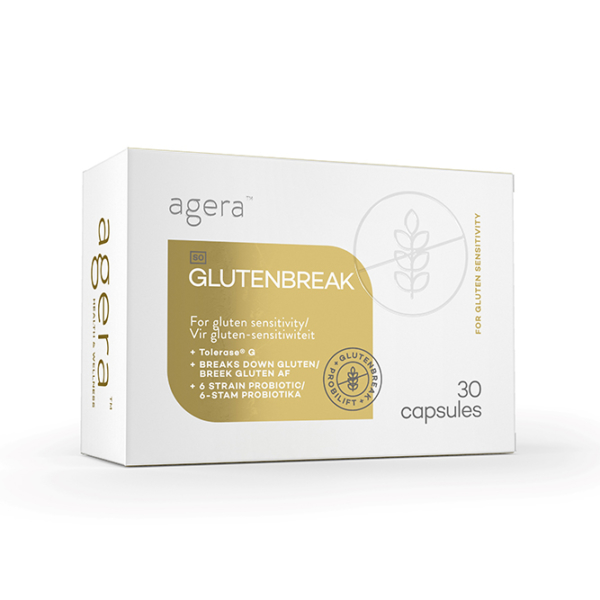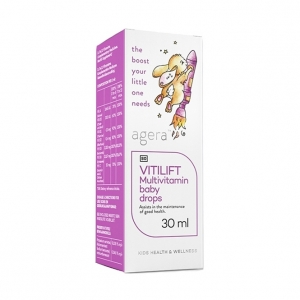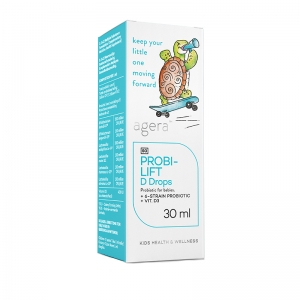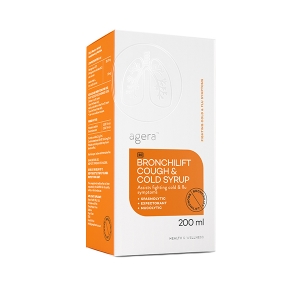Description
For gluten sensitivity
30 Capsules
GLUTENBREAK is a probiotic supplement specifically formulated with 6 probiotic strains and Tolerase G® (prolyl-oligopeptidase), an enzyme that helps the body to break down proline-rich proteins like gluten that are difficult to digest1.
The poorly digested gluten fragments can cause an adverse response in some individuals, resulting in flatulence or bloating, abdominal discomfort, diarrhoea, constipation and allergic skin conditions2-3.
By supplementing your diet with GLUTENBREAK, you can assist the breakdown of hidden gluten in foods and relieve some of the digestive symptoms it may cause. The probiotic combination inside GLUTENBREAK may also assist in the breakdown of other common digestive irritants like lactose and other FODMAPs4, as well as support a healthy gut and immune system.
What does GLUTENBREAK do?
- Digests gluten to reduce the symptoms of gluten sensitivity
- Helps fight infections caused by harmful bacteria
- Strengthens the immune system
- Supports a healthy gut
Probiotics can assist in:
- The breakdown of gut irritants like lactose and other FODMAPs4.
- Minimising GI discomfort and bloating associated with IBS (irritable bowel syndrome), IBD (inflammatory bowel disease) & colitis (intestinal inflammation)5.
- Reducing the risk and severity of diarrhoea and constipation6.
How to Use:
|
DOSAGE AND DIRECTIONS FOR USE: |
|
|
Adults: |
One capsule daily before food |
The dose can be increased to 2 capsules daily depending on the size of the meal, and where dairy products are consumed during the meal.
Preservative, sugar, flavouring and colourant free.
Do not exceed recommended daily dosage.
Always tell your healthcare professional if you are taking other medicines on a regular basis, including complementary or traditional medicines.
Safety for use during pregnancy and lactation has not been established.
Porphyria: Safety has not been established.
Do not use when known sensitivity or allergy exists towards any of the ingredients.
STORE OUT OF SIGHT AND REACH OF CHILDREN
This medicine has not been evaluated by the South African Health Product Regulatory Authority (SAHPRA) for its efficacy and intended use.
This medicine is not intended to diagnose, treat, cure or prevent any disease.
GlutenBREAK is not intended to replace a gluten-free diet. GlutenBREAK is not intended to treat or prevent celiac disease.
Ingredients:
Active substances per capsule:
1 billion CFU* probiotics consisting of a blend of:
Bifidobacterium lactis BI-07® 200 million CFU
Bifidobacterium longum BI-05® 150 million CFU
Lactobacillus acidophilus La-14® 200 million CFU
Lactobacillus reuteri 1E1 150 million CFU
Lactobacillus rhamnosus Lr-32® 150 million CFU
Lactobacillus salivarius Ls-33® 150 million CFU
Tolerase® G (Aspergillus niger-derived prolyl-endoprotease (AN-PEP)) 83 000 PPI**
*CFU – Colony Forming Units
** Protease Picomole International
Tolerase® G is a trademark of DSM.
Inactive Ingredients:
Microcrystalline cellulose and magnesium stearate.
Detailed Information:
Scheduling status: S0. Proprietary name (and dosage form): GLUTENBREAK (capsules). Pharmacological classification: D. 34.12 Multiple Substance Formulation. Complementary Medicine. Health Supplement. Pharmacological action: Probiotics are beneficial bacteria, essential for improving intestinal health. GLUTENBREAK is a probiotic supplement specifically formulated with 6 probiotic strains and prolyl-oligopeptidase, an enzyme that helps break down gluten. Certain medication or disease states can affect microflora and therefore increase the risk and susceptibility of gut infections. Probiotics can increase the levels of beneficial bacteria in the gut, creating an environment that is unfavourable to the growth of harmful bacteria. By introducing live probiotic cultures to the intestinal tract, the beneficial gut flora populations are increased and transitory flora, including pathogenic or bad bacteria, are not able to colonise in the intestine. By supplementing your diet with GLUTENBREAK, you can strengthen your barrier effect to keep you healthy. GLUTENBREAK contains the enzyme prolyl-oligopeptidase, a naturally occurring enzyme that helps the body to break down proline-rich proteins like gluten that are difficult to digest. The poorly digested gluten fragments can cause an adverse response in some individuals, resulting in flatulence, abdominal discomfort, diarrhoea and allergic skin conditions. GLUTENBREAK helps the body to digest gluten and manage symptoms of gluten sensitivity. Identification: GLUTENBREAK is an opaque white gelatine capsule filled with a white to off-white powder. Presentation GLUTENBREAK is supplied as 30 capsules packed in 3 PVDC/aluminium blisters. Each carton contains 3 blister strips. Agera Health. info@agerapharma.co.za. www.agerahealth.co.za. 30 Capsules.
Resources:
- Konig et al. (2016). Aspergillus niger-derived enzyme AN-PEP efficiently degrades gluten in the stomach of gluten-sensitive subjects. Clinical Nutrition, 35(1), 152.
- Sapone, A. et al. (2012). Spectrum of gluten-related disorders: consensus on new nomenclature and classification. BMC Medicine, 10, 13.
- Fasano, A., Sapone, A., Zevallos, V., Schuppan, D. (2015). Nonceliac gluten sensitivity. Gastroenterology, 148, 1195–1204.
- Rossi, M., Corradini, C., Amaretti, A., Nicolini, M., Pompei, A., Zanoni, S., Matteuzzi, D. (2005). Fermentation of Fructooligosaccharides and Inulin by Bifidobacteria: a Comparative Study of Pure and Fecal Cultures, as well as support a healthy gut and immune system. Applied and Environmental Microbiology, 71(10), 6150–6158.
- Ringel, Y., Ringel-Kulka, T., Maier, D., Carroll, I., Galanko, J. A., Leyer, G., Palsson, O. S. (2011). Clinical trial: Probiotic Bacteria Lactobacillus acidophilus NCFM and Bifidobacterium lactis Bi-07 Versus Placebo for the Symptoms of Bloating in Patients with Functional Bowel Disorders – a Double-Blind Study. Journal of Clinical Gastroenterology, 45(6), 518–525.
- Sazawal, S., Hiremath, G., Dhingra, U., Malik, P., Deb, S, Black, R. E. (2006). Efficacy of probiotics in prevention of acute diarrhoea: a meta-analysis of masked, randomised, placebo-controlled trials. The Lancet Infectious Diseases, 6(6), 374 –382.
- Janssen, G., Christis, C., Kooy-Winkelaar, Y., Edens, L., Smith, D., van Veelen, P., et al. (2015). Ineffective Degradation of Immunogenic Gluten Epitopes by Currently Available Digestive Enzyme Supplements. PLoS ONE, 10, 6, e0128065.
- Van Overbeek, F., et al. (1997). The daily gluten intake in relatives of patients with coeliac disease compared with that of the general Dutch population. European Journal of Gastroenterology and Hepatology, 9(11), 1097-1099.
- Hopman, E., et al. (2006). Nutritional management of the gluten-free diet in young people with celiac disease in The Netherlands. Journal of Pediatric Gastroenterology and Nutrition, 43(1), 102-108.
- Hopman, E., et al. (2008). Gluten tolerance in adult patients with celiac disease 20 years after diagnosis?, European Journal of Gastroenterology and Hepatology, 20(5), 423-449.
- 11.Errichiello, S., et al. (2010). Celiac disease: predictors of compliance with a gluten-free diet in adolescents and young adults. Journal of Pediatric Gastroenterology and Nutrition, 50(1), 54-60.
- 12.Lovik et al. (2017). Diet adherence and gluten exposure in coeliac disease and self-reported non-coeliac gluten sensitivity. Journal of Clinical Nutrition, 36, 275-280.








Suzane Lehmann (verified owner) –
Nice product. Defenitely makes a difference. My son now only feel simptoms a short time.